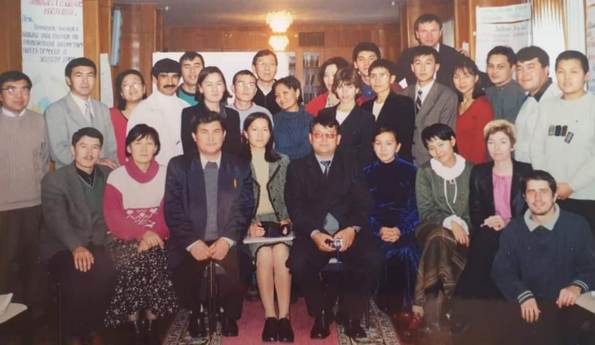Mangroves Are Vital Ecosystems
They help build beaches and slow erosion, protect communities from storms and tsunamis and provide habitat for valuable fisheries. However, mangrove ecosystems are declining rapidly – threatening both the local and national economy on a global scale.
While the values and ecosystem services of mangroves are well known, there is a lack of solid understanding of carbon stocks and emissions from land use conversion of mangroves. Deforestation and conversion of these ecosystems continue to be high and have been predicted to result in significant carbon emissions to the atmosphere. Yet few studies have quantified the carbon stocks or losses associated with conversion of these ecosystems.
Counterpart and its partners Oregon State University, AgroFrontera and the Watershed Professionals Network completed a significant study on quantifying the ecosystem carbon stocks of mangrove types of the Caribbean as well as that of abandoned shrimp ponds in areas formerly occupied by mangrove.
The study titled “Carbon Stocks on intact mangroves and carbon emissions arising from their conversion in the Dominican Republic” at last week’s United Nations Global Landscape Forum in Warsaw, Poland and also highlighted at last month’s United Nations Framework Convention on Climate Change (UNFCCC) workshop in Bohn, Germany.
The conferences provided a platform to inform and engage with world leaders, policymakers, scientists, and climate negotiators about the function of mangroves and the importance of including them as part of climate change mitigation strategies.
“The purpose of the workshop was to raise awareness among UNFCCC climate change delegates of the values of these ecosystems — namely tropical peatlands, mangroves and other coastal ecosystems, temperate peatlands and permafrost ecosystems — given their large carbon stocks and potential emissions arising from land use change,” says Dr. Boone Kauffman from Oregon State University, a leader in Counterpart’s blue carbon work and one of the authors of the study.
The UNFCCC gathered scientists and climate change policy makers to discuss the important development of high-Carbon ecosystems such as mangroves and placing them in climate change mitigation and adaption strategies.
Habitats in Decline
The Caribbean region is losing mangrove forests at one percent per year, which is estimated to occupy about 21,215 hectare in the Dominican Republic. The focus of the study was in the Province of Montecristi, where Counterpart has a five-year-old program to increase biodiversity conversation and create sustainable livelihoods for fishermen and farmers. Montecristi is home to up to 40 percent of the country’s mangroves.
Mangroves are critical habitats for many fish and shellfish and with a 30-50 per cent decline in land area over the past half-century, mangroves may functionally disappear in as little as 100 years.
The quantifying and understanding the emission factors associated with changes in land use is important because it allows for an international presence in future carbon mitigation strategies.
The study identified the current and converted mangrove extent of the region and stratified mangroves based upon geomorphology, structure and land use. It also measured the total ecosystem carbon stocks within each type and scaled the ecosystem carbon stocks to the landscape scale to estimate total stocks and losses due to conversion.
Counterpart and its partners determined the composition, structure and ecosystem carbon stocks of 12 different coastal wetlands in Montecristi including: tall mangroves, medium mangroves, low mangroves and abandoned shrimp ponds.
For information on the study please visit www.esajournals.org/doi/abs/10.1890/13-0640.1
“Carbon Stocks on intact mangroves and carbon emissions arising from their conversion in the Dominican Republic. by J Boone Kauffman from Oregon State University, Chris Heider from Watershed Professionals Network, Frederick Payton from AgroFrontera and Jennifer Norfolk from Counterpart International.




